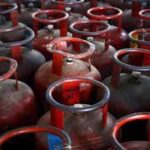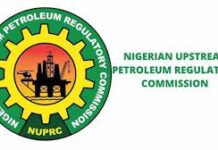.says Old, substandard gas cylinders flood Nigeria’s market
In a bid to rid the Nigerian market of old and substandard gas cylinders that is capable of causing explosions in the households ,the Standards Organisation of Nigeria (SON) has urged gas plants to reject expired or substandard LPG cylinders when brought for refilling.
They also said it is worrisome that old, refurbished and substandard gas cylinders have found their ways into the Nigeria’s market and declared the danger this portend for many users in the country.
The organisation said many Liquefied Petroleum Gas ( LPG), also known as cooking gas cylinders, should be rejected at refilling points or destroyed to forestall explosions and injuries.
Mr Williams Okpeh, Head of LPG, SON, made the appeal at a workshop for journalists Lagos with the workshop theme as “Securing Nigeria Through Standardisation.”
He said this would go a long way in preventing incidents of cooking gas explosions across the country with the attendant injuries, loss of lives and property.
Okpeh, represented by Mr Edward Akinwale, Principal Standard Engineer, SON, noted that the average lifespan of a cooking gas cylinder was 15 years with re-qualification of the cylinder every five years.
He said unfortunately, some persons still smuggled used cylinders into the country, refurbished and sold them as brand new to unsuspecting Nigerians.
According to him, some also embark on local fabrication of cylinders without following the prerequisite safety standards and requirements.
“In some countries, cooking gas cylinders are owned by distributors who re-qualifies them from time to time but here ( Nigeria), they are owned by individuals who find it difficult to replace them.
“My advice is that plants should reject expired or substandard LPG cylinders when they are brought for refilling.“Also, we should ensure that used LPG cylinders are not imported into the country.
“LPG cylinders must be identified with manufacturer’s or importer’s name/logo while imported LPG cylinders must have SON registration number for traceability. “Also, locally produced LPG cylinders must have MANCAP number for traceability,”Okpeh said.

Also, Malam Farouk Salim, Director-General, SON, said SON was ready to collaborate with relevant stakeholders and agencies to enforce standards across the oil and gas value chain.
Salim said the importation of substandard LPG cylinders was an economic sabotage as it prevented local manufacturers from thriving while endangering the lives of Nigerians
Mr. Salim, on the other hand, craved collaboration with journalists to help the country get rid of the dangerous trend.
Corroborating Okpeh’s view, Engineer Abner, Head of Oil and gas, and directorate of training, SON, stated that cylinders manufactured in the 70s are still in the Nigerian market, insisting that cylinders only have a 15 year lifetime.
“I am sure if you go to the market you will still see Cylinders of the 70s in the Nigeria market circilating. They are still there,” he said.
Abner, maintained that the oil and gas sectot is bedevilled with a number of challenges, “which include wrong base oil usage, base oil usage in lubricants, high sulphur content, poorly refined crude that have found their ways to Nigeria market as well as adulteration of kerosene.”
SON, he stated, acquired hand-held kits since 2012 for white products quality monitoring where samples were tested in Petrol stations country-wide.
“SON initiated collaboration with DPR to have testing-vans that would be useful. In 2014 there were series of concerns raised on Domestic LPG quality “High pressure due to high content of Propane and butane.“As a result, explosions were rampant with the quality of cylinders and accessories suspected to be responsible.
“SON analysis results were presented for stakeholders discussion. Standards were revised for both the LPG cylinders and domestic LPG.
“The primary control was placed on the vapour pressure which was maintained at 7.0 Bars “Codes of practices were developed and approved for the LPG dispensing stations/Plants for use by relevant authorities to monitor activities at that level.”
On sulphur content in fuels, Abner said; “In 2016 Federal Ministry if Environment (FME) led by the current Deputy Sec Gen. Of UN, Mrs. Amina Muhammed, sought to raise quality of fuels, and it then commenced stakeholders engagement.
“Some of the products had sulphur as high as 2000ppm. West African countries keyed into the vision of maintaining the sulphur level.
“At some point we beat this down to 200 ppm and 150ppm. We discovered that even our refineries could not meer up. The minister went to the President to get a waiver for them. As at today, I dont know the level because it is at the level of government.
“All the private refineries including the Dangote have been asked to key in to this. Dangote, fir instance, is to produce at 50ppm (pass per milliion)” he concluded..






















